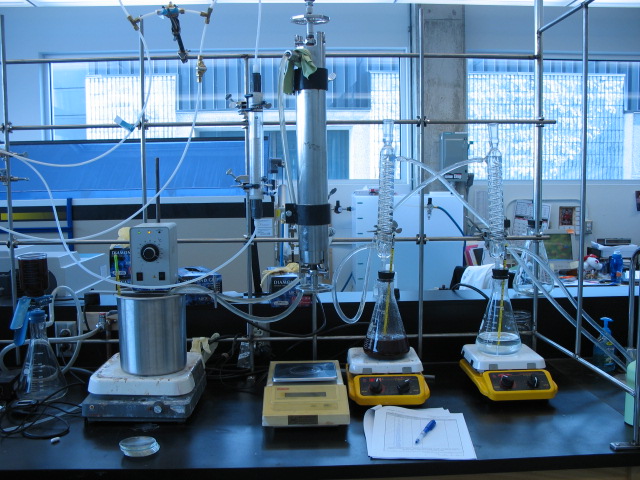LABORATORY TESTS
CONSTANT CALCULATIONS FOR DESIGN AND OPTIMIZATION
SIMULATE TO VALIDATE
 Among the many filtration and separation processes available on the market, choosing the
right device or system, while being a crucial step, can be a bit overwhelming.
Over the past 15 years, STS Canada has been building and using simulators and designing lab
protocols. These testings enable us to calculate necessary constants for system and unit
operation design. Only with this kind of understanding of separation processes, can the
highest benefit-to cost ratio be achieved. You can count on us for the design and
optimization of your separation processes:
Among the many filtration and separation processes available on the market, choosing the
right device or system, while being a crucial step, can be a bit overwhelming.
Over the past 15 years, STS Canada has been building and using simulators and designing lab
protocols. These testings enable us to calculate necessary constants for system and unit
operation design. Only with this kind of understanding of separation processes, can the
highest benefit-to cost ratio be achieved. You can count on us for the design and
optimization of your separation processes:
Pilot lab equipment enables us to exhaustively demonstrate the technical and economical validity of our recommendations. With the constants generated through our experimentations we are then able to size your equipment with great precision. This in turn garantees a robust operation that meets your objectives. Below is an overview of our simulating capabilities:
- Pressure filters (pocket leaf filter, candle filter)
- Vacuum filter
- On-line strainer
- Membrane filtration
- Settling rate testing (jar tests)
- Hydrocyclone
- Centrifugal separator
- Dissolved-air flottation
- Electrocoagulation
- Liquid-liquid separator
Our thorough comprehension of filtration principles enables us to target key parameters and constants to be evaluated through our lab testings and simulations. For instance:
- Volume and mass resistance
- Permeability
- Porosity
- Moisture content
- Dry and wet bulk density
- Washing pattern plot
- Optimum washing ratio
- Cake moisture dewatering plot
- Optimum pressure and drying time
Sometimes filtration objectives can not be reached without oversizing equipment. To avoid such expenditures, STS can evaluate different cake property modifiers which could facilitate filtration and circumvent the need for bigger and more expensive systems.
The most popular techniques and products can be summarized as:
- Liquid coagulant
- Solid coagulant
- Natural flocculants
- Synthetic flocculants
- Solid filter-aids
- Surface active agents (moiture control surfactant)
- Cell disruption techniques (Lysis)
When chemical species to be separated are in a dissolved state, several option can be evaluated:
- Precipitation with chemical additives
- Electrochemical precipitation
- Solid media adsorption
- Sonochemistry (precipitation, oxidation)
When designing or optimizing filtration systems, knowledge of filter media properties is key to success. Amongst other, our lab can evaluate:
- Filter media resistance
- Filtration rate
- Dirt holding capacity
- Clogging rate (restriction build-up)